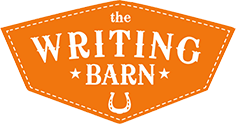Hi! P. J. Hoover here, author of the upcoming dystopian/mythology YA novel, Solstice (Tor Teen, June 18, 2013), and today I am thrilled to be blogging here at the Writing Barn’s blog. For those of you who’ve never made it to The Writing Barn, you are missing out big time. Get thee to Austin for one of the many wonderful events they put on. But anyway, on to the topic of the blog which is . . .
. . . what my book taught me.
 Given the number of revisions Solstice has gone through, sometimes I wonder what my book hasn’t taught me. But in the interest of time and space, I’ll stick with my top three things.
Given the number of revisions Solstice has gone through, sometimes I wonder what my book hasn’t taught me. But in the interest of time and space, I’ll stick with my top three things.
The Top Three Things Solstice Taught Me
1) Writing Evil Characters is Fun. Seriously.
So for those not familiar with Solstice, it’s set half in Austin, Texas in the future when Global Warming is destroying the earth and half in the Underworld. Yeah, like the world ruled by Hades. And in the Underworld, there are some dark characters lurking around. People who have been judged and sentenced to Tartarus for the rest of their eternal days. Sisyphus. Tantalus. Pirithous. These guys did some horrible things to earn their fate, and writing them, while creepy, was enjoyable.
Why?
Here’s the best I can come up with. Seeing as how I am not an evil person, writing characters who are evil gives me a chance to explore the dark side. We talk about whether it is right or wrong to let kids read darker stories, and the justification I have heard the most is that in stories kids can explore darker issues while still remaining in their safe world. The same goes for writers. Writing about evil people or events gives writers a chance to explore this same dark side. And in addition, since we writers are the creators of our stories, it gives us the opportunity to see good vanquish the evil we have created once again.
2) The Road to Hell is not Paved with Good Intentions.
Nor does a snowball have a chance in hell. And Austin is not hot as hell. Hell is not going to freeze over. Wait! What am I using all these clichés for? Oh, that’s right. Because I’m not using them in my book.
Sure, when I wrote the first draft of Solstice, I’d thrown in my fair share of hell clichés. I thought they were witty and clever. But when it came right down to it, what they were was cliché. And they had to go. Not just because they were clichés, but because they were too closely related to the story.
Why? Well, as a reader gets into a story (which hopefully many will with Solstice), the last thing an author should want is anything that will take the reader out of the story. To make them stumble. Clichés related to hell did just this. They made the reader stop and (maybe) chuckle, (maybe) roll their eyes, whatever. And then the reader would have to get back into the story all over again.
Deeply engrossing reads is what we, as authors, should want to produce. Not stumble-inducing pages filled with words.
3) Enjoy Your Chocolate Now
And your wine. And steaks. Oh, and don’t forget to enjoy your water. Because in the future, when global warming is destroying the world, all these things will be in severe shortage.
Yes, yes, I know we’re not talking about global warming. But what we are talking about is world building. It’s all fine and great to set a story in a world different than our own. When you do this, however, every single aspect of that world needs to be developed. Things from food and water to communications, crime, and government. And each of these individual aspects needs to be fully developed itself. Because if you don’t, readers will catch it. And they will call you out for it. And you will stop and wonder why you didn’t take more time to develop the world in the first place.
For Solstice, there were countless times I had to take a step back from revising and visit my world once again. To imagine myself there. And then to get back to the writing and translate these thoughts onto the page.
Oh, yeah, and then I had a nice piece of chocolate to celebrate a job well done.
 P. J. Hoover first fell in love with Greek mythology in sixth grade thanks to the book Mythology by Edith Hamilton. After a fifteen year bout as an electrical engineer designing computer chips for a living, P. J. decided to take her own stab at mythology and started writing books for kids and teens. When not writing, P. J. spends time with her husband and two kids and enjoys practicing kung fu, solving Rubik’s cubes, and watching Star Trek. Her first novel for teens, Solstice (Tor Teen, June 18, 2013), takes place in a global warming future and explores the parallel world of mythology beside our own. Her middle grade novel, Tut (Tor Children’s, 2014), tells the story of a young immortal King Tut, who’s been stuck in middle school for over 3,000 years and must defeat an ancient enemy with the help of a dorky kid from school, a mysterious Egyptian princess, and a one-eyed cat. For more information about P. J. (Tricia) Hoover, please visit her website www.pjhoover.com.
P. J. Hoover first fell in love with Greek mythology in sixth grade thanks to the book Mythology by Edith Hamilton. After a fifteen year bout as an electrical engineer designing computer chips for a living, P. J. decided to take her own stab at mythology and started writing books for kids and teens. When not writing, P. J. spends time with her husband and two kids and enjoys practicing kung fu, solving Rubik’s cubes, and watching Star Trek. Her first novel for teens, Solstice (Tor Teen, June 18, 2013), takes place in a global warming future and explores the parallel world of mythology beside our own. Her middle grade novel, Tut (Tor Children’s, 2014), tells the story of a young immortal King Tut, who’s been stuck in middle school for over 3,000 years and must defeat an ancient enemy with the help of a dorky kid from school, a mysterious Egyptian princess, and a one-eyed cat. For more information about P. J. (Tricia) Hoover, please visit her website www.pjhoover.com.
